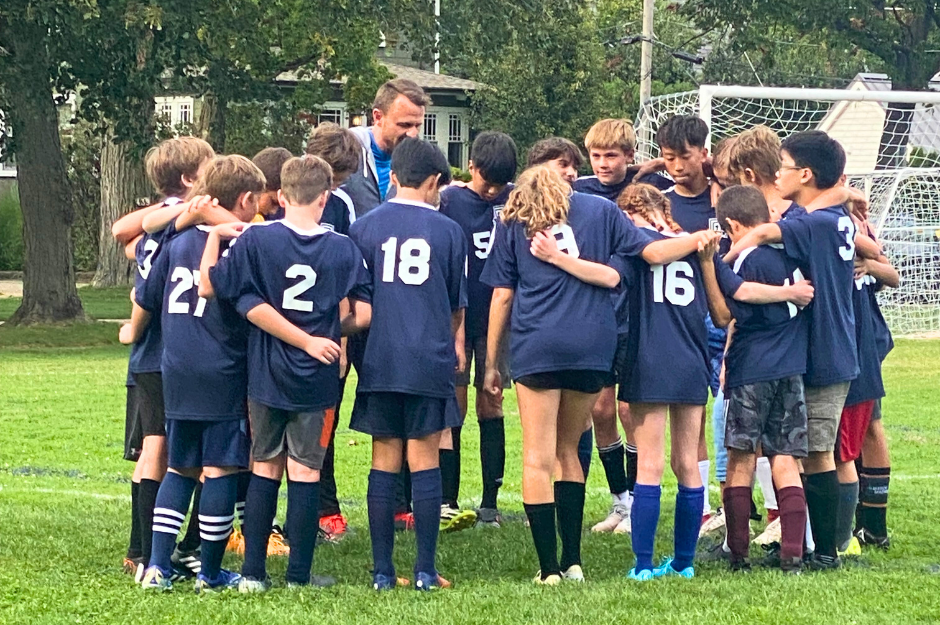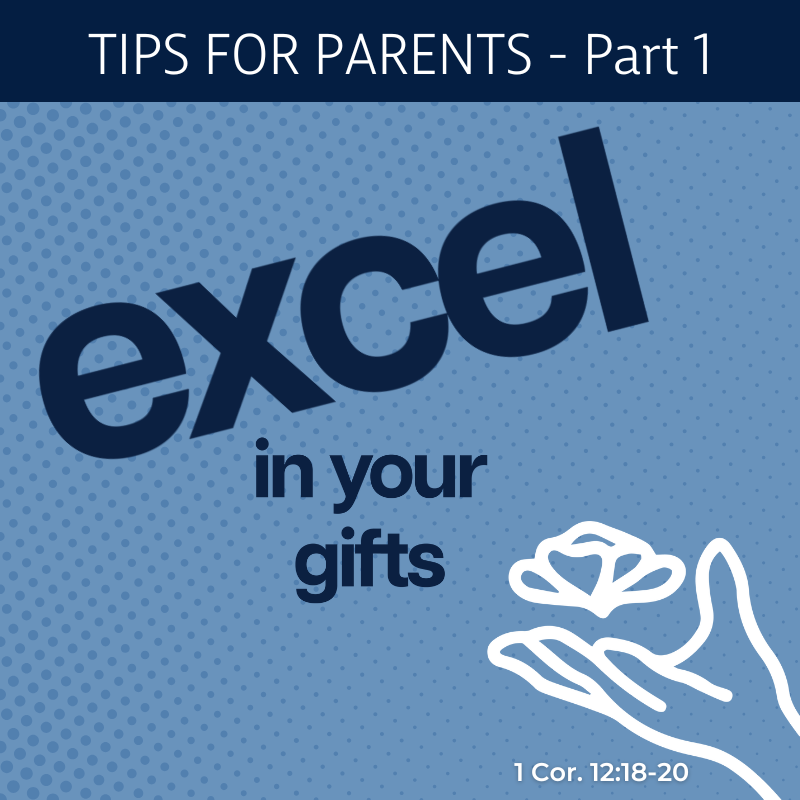
Every semester, I have the privilege of introducing our semester theme to our students. For three years, we are working through our six Expected Student Outcomes:
Love Courageously (Fall 2023)
Seek and Speak the Truth (Spring 2024)
Explore God’s Diverse World (Fall 2024)
Excel in Your Gifts (Spring 2025)
Walk in God’s Ways
Think Creatively, Critically, and Collaboratively
This semester, our theme is Excel in Your Gifts. I’ll be using this space over the next month to provide some tips on how you, as parents, can partner with us in helping your kids internalize this biblical concept.
Before we start, I want to be careful about something. More than any of our other ESOs, this one feels "easy." Loving courageously takes guts. Speaking the truth can result in some true hardship and loss of popularity. Exploring God’s diverse world can, at times, make us uncomfortable and requires a sense of adventure and genuine empathy.
Being convinced that your kids have gifts? That seems easy, natural, and even obvious. "Yes, my kids have skills and abilities! And they have so much potential!"
But consider this. If our kids do not understand (truly and deeply) that their skills and abilities are gifts—things that are from God, and not simply of their own doing—they will fall prey to myriad temptations, character flaws, and sins that scripture warns against. Teaching the concept of giftedness is a big deal in parenting.
What’s a great check against selfishness? Seeing all you have as a gift from God.
What’s an antidote for pride? Seeing your abilities not as yours but as things you’ve been given.
What’s a balm against self-loathing and self-doubt and anxiety? Seeing your life as a treasure.
In a world without Jesus—a may-the-best-man-win world, and an I-will-manifest-my-own-success world, and a these-are-my-rights-and-you’d-better-not-take-them world—we push and clamour and shove our way to the top. Our skills result in pride and ownership and domination rather than love and patience and peace.
So how as parents do we effectively instill this full biblical concept of giftedness in our kids?
I Corinthians 12 is the quintessential passage on giftedness in the New Testament. I would encourage you to read through that passage this semester as we have done already in our Middle and Upper School chapels. This article will cover our first parenting tip on fostering a culture of biblical giftedness in your family.
Tip #1—Help your kids admit that they have gifts, and help them to accurately identify them.
In I Corinthians 12, Paul states: “Now there are varieties of gifts, but the same Spirit; and there are varieties of service, but the same Lord; and there are varieties of activities, but it is the same God who empowers them all in everyone.”
Your kids, as they follow after Jesus, are given gifts and opportunities and abilities that are a blessing from above. But have you ever taken the time to examine them with your children and precisely articulate what they are?
 When I was in seventh grade, I wasn’t sure if I was very good at soccer or not. I was the shortest kid on my team, and I was skinny. I wasn’t the fastest, I wasn’t the best dribbler, and I didn’t have the best shot. But one day, my dad told me about a conversation he’d had with my coach, who had told him, very clearly and precisely, that while I wasn’t the biggest and strongest, I had great field vision and was an excellent passer of the ball—and that he loved coaching me. I worked my tail off for that coach the rest of the season.
When I was in seventh grade, I wasn’t sure if I was very good at soccer or not. I was the shortest kid on my team, and I was skinny. I wasn’t the fastest, I wasn’t the best dribbler, and I didn’t have the best shot. But one day, my dad told me about a conversation he’d had with my coach, who had told him, very clearly and precisely, that while I wasn’t the biggest and strongest, I had great field vision and was an excellent passer of the ball—and that he loved coaching me. I worked my tail off for that coach the rest of the season.
Have you taken the time to clearly articulate to your kids how they are gifted? I’m not just talking about comments like “You’re really smart” or “Good leadership out there, buddy.” I’m talking about comments over ice cream or on a car ride like, “You have a real gift for seeing all the parts of a problem and figuring out a solution. For example, when you…” Or “I saw you pull aside your friend during the game when he was looking discouraged. His whole attitude changed. That’s part of leadership that people often overlook.”
You would be shocked at how many students don’t feel like they have meaningful gifts. We are blessed to have so many CHA faculty who faithfully encourage students. Join with us by having those conversations with your kids, too. They should hear it from both of us!
—JT
























